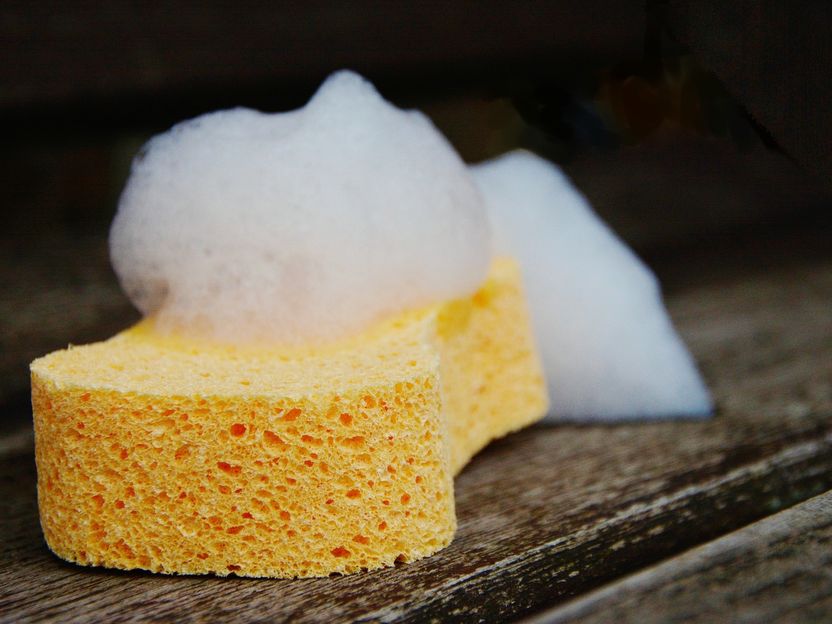Evonik builds world's first industrial-scale production plant for rhamnolipids
Fermentation of sugar replaces petrochemical raw materials
Evonik is investing a three-digit million-euro sum in the construction of a new production plant for bio-based and fully biodegradable rhamnolipids. The decision to build the plant follows a breakthrough in Evonik's research and development. Rhamnolipids are biosurfactants and serve as active ingredients in shower gels and detergents. Demand for environ-mentally friendly surfactants is growing rapidly worldwide.

Symbolic image
pixabay.com
The investment at the Slovenská Ľupča site in Slovakia strengthens Evonik's partnership with the consumer goods group Unilever, which began in 2019. At the same time the investment allows Evonik to further expand its own market position in the growth market for biosurfactants. The new plant is scheduled to come on stream in two years.
"We invest more than €400 million a year in our research and development," says Harald Schwager, Evonik's Chief Innovation Officer. "The journey of rhamnolipids from the initial idea to the finished product has been long, but it is worth it. This partnership with Unilever is a result of our expertise in biotechnology. "
“Rhamnolipids are an important part of our Clean Future initiative which has set the goal to replace fossil carbon in all cleaning products by 2030. We want to make sustainability easy for everyone that uses our products. The partnership with Evonik helps move our brands away from fossil fuels without compromising on performance or affordability.” says Peter Dekkers, Executive Vice President Middle Europe, Unilever.
Rhamnolipids are produced by fermentation of sugar. Fossil carbon and tropical fats, which have so far been used to produce conventional surfactants, are therefore superfluous. The biodegradation of rhamnolipids makes them a sustainable alternative that also offers excellent foaming properties and is gentle on the skin. Applications are diverse and extend beyond cleaning agents to personal care.
"With the construction of the world's first industrial-scale production facility, we can supply this rapidly growing market with excellent quality," says Johann-Caspar Gammelin, Head of the Nutrition & Care division. "At the same time, we are further expanding the share of system solutions in Nutrition & Care."
Evonik’s life sciences division Nutrition & Care has set itself the goal of increasing its share of system solutions from 20 percent today to more than 50 percent by 2030.
Most read news
Other news from the department manufacturing

Get the chemical industry in your inbox
By submitting this form you agree that LUMITOS AG will send you the newsletter(s) selected above by email. Your data will not be passed on to third parties. Your data will be stored and processed in accordance with our data protection regulations. LUMITOS may contact you by email for the purpose of advertising or market and opinion surveys. You can revoke your consent at any time without giving reasons to LUMITOS AG, Ernst-Augustin-Str. 2, 12489 Berlin, Germany or by e-mail at revoke@lumitos.com with effect for the future. In addition, each email contains a link to unsubscribe from the corresponding newsletter.



























































